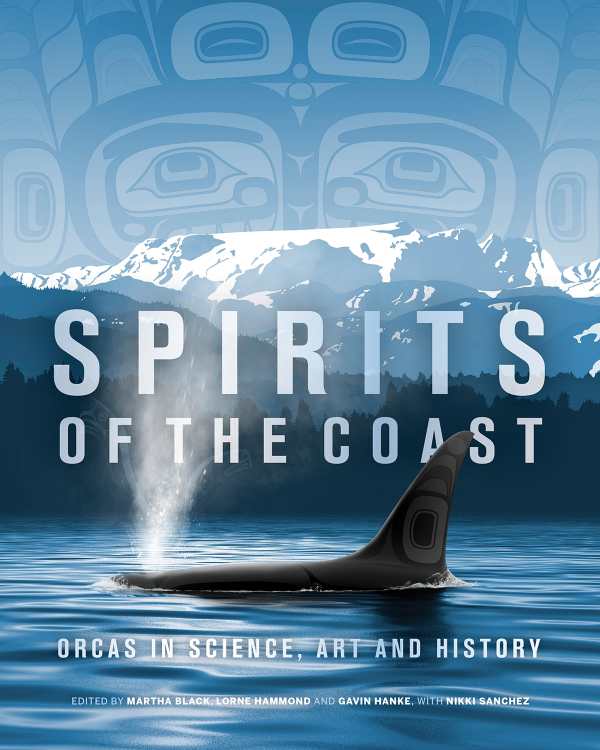Spirits of the Coast
Orcas in Science, Art and History
In Spirits of the Coast, the companion book to the Royal British Columbia Museum’s 2020 feature exhibition Orcas: Our Shared Future, orca experts, artists, storytellers, and Indigenous wisdom keepers issue an invitation to understand, celebrate, and come together to protect these marvelous marine mammals.
The book reveals that, in the complex world of orcas, there is a matriarchal social structure and that family ties are strong. It relates that orcas communicate in a nuanced language with dialects that differ in different populations; their emotional expressions encompass joy, sadness, anger, and grief. Orcas also mourn their dead and engage in altruism; Indigenous stories recall orcas saving drowning people, guiding boats to safety, and revealing where food could be found in times of famine. As such, the Indigenous people honor orcas as kin, though white settlers have historically treated them as competitors to their fishers.
In the past, the book says, humans learned about orcas from captive individuals, but we now know better than to regard orcas as monsters to be shot on sight, or as creatures that it’s okay to tear from their pods and keep in small tanks, training them to provide entertainment. And yet this new awareness is not enough: overfishing and climate change are depriving orcas of their main sustenance, the seas are becoming more acidic and polluted with plastics and noxious chemicals, and ever-increasing underwater noise from industry and marine traffic hinders the echolocation that orcas rely on to communicate with each other and hunt.
With its heartfelt essays and stunning photographs of orcas in moments both intense and tender; colorful examples of Indigenous orca art, both historic and contemporary; and stories, legends, and science, Spirits of the Coast makes it clear that the survival of magnificent orcas “isn’t about managing the ocean, it’s about managing humans.”
Reviewed by
Kristine Morris
Disclosure: This article is not an endorsement, but a review. The publisher of this book provided free copies of the book to have their book reviewed by a professional reviewer. No fee was paid by the publisher for this review. Foreword Reviews only recommends books that we love. Foreword Magazine, Inc. is disclosing this in accordance with the Federal Trade Commission’s 16 CFR, Part 255.

